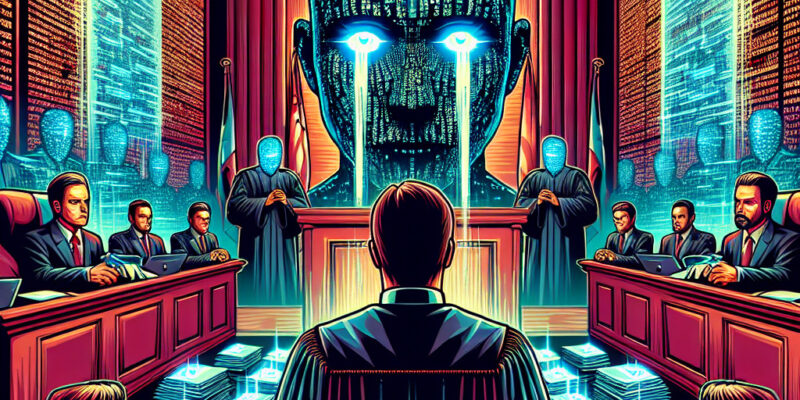Eliza Labs Battles Elon Musk: Lawsuit Over AI Copycat Allegations

In recent developments within the tech and AI spheres, an intriguing legal confrontation has emerged between Eliza Labs and Elon Musk’s technology conglomerate. Eliza Labs, known for its innovative strides in artificial intelligence, has leveled serious accusations against Musk’s company, alleging unauthorized utilization of their data. This dispute centers around claims that proprietary data and models were used by Musk’s X division, followed by an alleged release of very similar AI agents under the xAI banner.
The heart of this legal drama lies in the essence of intellectual property rights within the rapidly evolving field of artificial intelligence—a realm where creativity, innovation, and proprietary technology often stand as companies’ most valuable assets. Eliza Labs asserts that the AI agents launched by Musk’s xAI show uncanny resemblance in functionality and purpose to their own AI creations, which they argue could not be a mere coincidence.
For those not closely following the world of AI, Eliza Labs is a company that has been making significant waves with their cutting-edge AI solutions. They have built a reputation for pushing the boundaries of what artificial intelligence can achieve, often setting industry standards in the process. This positions their work as particularly valuable and, as evidenced by this lawsuit, potentially at risk of being replicated.
Elon Musk, a figure synonymous with innovation from Tesla to SpaceX, has also turned his focus towards artificial intelligence in recent years. His ventures into AI, particularly with the xAI project, are designed to propel his companies further into the future and expand their technological prowess. Given Musk’s history of shaking up industries with disruptive innovations, it is perhaps unsurprising that his projects often draw scrutiny and, in cases like this, legal challenges.
The litigation between Eliza Labs and Musk’s X highlights a broader conversation about ethical boundaries in technology development. At what point does inspiration become imitation? And how can original creators protect their work in such a dynamic field? As AI becomes increasingly sophisticated, these questions will inevitably loom larger.
As the lawsuit unfolds, both companies will have to navigate not only the legal landscape but also the court of public opinion—a powerful entity in its own right. The outcome could set important precedents for how AI technology is treated in intellectual property law, especially as more startups and tech giants continue to overlap in their innovations.
While the legal system will eventually decide the merits of Eliza Labs’ claims, this case is a telling example of how fierce and protective the competition can be within the tech world. It reminds us of the fine line between inspiration and replication, and the vital importance of safeguarding the creative spark that drives technological progress.
These proceedings will likely captivate the tech community and could have lasting implications for how AI developments are managed, shared, and legally protected. Both Eliza Labs and Musk’s xAI find themselves at a crossroads, where innovation, legal strategy, and public perception will deeply intertwine, shaping the path forward for all involved. And as we watch with curiosity and skepticism, one can’t help but wonder how this will influence the next chapter of artificial intelligence evolution.













